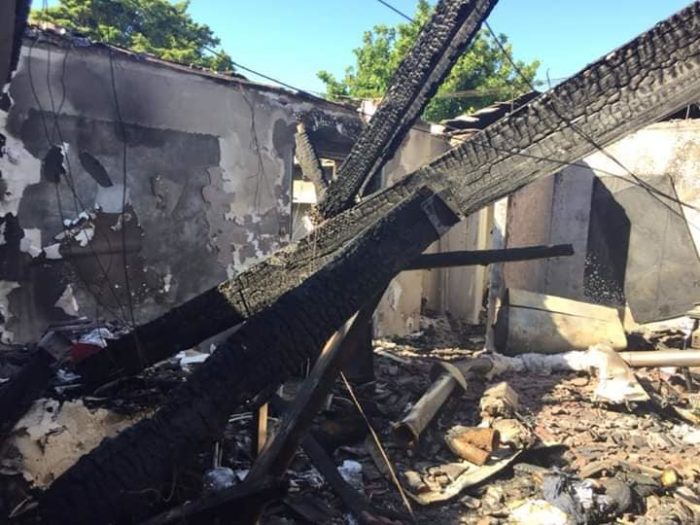Load shedding has been taking its toll on residents across the nation and Capetonians are no exception. While being left in the dark or without water is a huge inconvenience, some locals have reported that their homes burned to the ground, allegedly as a result of load shedding.
Recently, a Constantia resident raised the issue of power surges as a result of load shedding, sharing her story of how her home burnt down following a power outage. She also alleged that this was the cause of a fire that engulfed her house.
“A heads up to my fellow Constantia neighbours. Sadly, our house burnt down in Airlie Place on Friday due to dear Eskom and load shedding resulting in a power surge,” wrote Toni Dyamond in a Facebook post.

According to Dyamond, she felt the need to share her story so others could avoid their homes burning down. The fire chief told her that something as simple as turning off the dv board – a type of circuit board – when load shedding happens and back on once the power is back could save your home from catching alight.
As a resident, she has also heard of a number of other homes that have burned down due to the same issue.
“The fire chief advised me that the only way to prevent these tragedies is to switch the main switch off on the dv board when load shedding happens, and wait until power is back on before switching it back on. I thought it important to share this information. Apparently, 11 houses have burnt down in CT in the past week due to the same problem,” she said.

Another local took to Facebook to share her opinion on the incident. “This is the 4th time I see a story shared on FB groups about houses burning due to electrical faults since Thursday. There is definitely a power surge when the electricity is switched back on after load shedding. That is why people’s appliances, TVs and PCs are blowing.
I am guilty that I don’t take enough precaution against this, but since the weekend we have been unplugging our TV, decoder and sound system before load shedding.”
Fire and Rescue spokesperson Jermaine Carelse says he cannot confirm the reports of power surges causing fires due to load shedding, as the City prioritises putting out the fire and ensuring the safety of residents and property.
“The City’s Fire and Rescue Service responds to numerous incidents daily. Our priority is to extinguish fires as quickly as possible and to minimise any risk to lives or property. Often, the cause of fires is unknown in the immediate aftermath, so we are unable to confirm whether or not power surges as a result of load-shedding have been responsible for causing fires, ” said Carelse.
Carelse did, however, suggest a number of tips for locals to minimise their risk of power surges during load shedding.
“What I do is check the load shedding schedule and switch the mains off and all the plugs on the Distribution Board at least 10 minutes before the power is scheduled to go off. I have multi plugs all with surge protectors, and this prevents appliances from perhaps breaking as a result of the sudden surge of electricity. After the power has been restored, I first switch on the mains and then the plugs in the house also all plugs in the house must be switched off. It may seem a tedious operation but prevention beats a cure I say.”
This week, News24 also reported on a similar incident in the Free State where a nurse claims her room caught on fire when an appliance exploded due to a power surge caused by load shedding. A number of power faults have also been reported in Johannesburg due to load shedding.
Pictures: Facebook/Toni Dyamond

